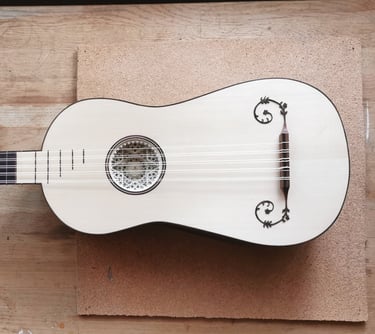EARLY GUITARS
Early guitars are guitars made after the ideals of the past. Most guitarists use these guitars to perform music the way it was originally thought by the composer, as a means to interpret how things could have sounded in the past. But early instruments aren't only an intellectual practice, they also offer new ways of making music, opening timbrical spaces and new interfaces to find artistic expressions in unexpected ways. Early guitars are really fun and great for playing with others.
Early instruments also open new spaces for the craftsman. Like with music, the craft of making guitars has developed over the centuries, celebrating different esthetical ideals and methodological approaches. As a guitar maker today, making early guitars is a rewarding way of understanding the developments of the instrument and thus gaining a deeper understanding of the thing itself. Because in many ways, early guitars work differently than modern ones, both in physics and in esthetics.
Early guitars are based on old guitars that have survived the centuries and are kept at museums today. Researching them gives us a good understanding of the methods used when making them, the materials preferred at the time, the range of shapes and sizes, how they were played and even the timbrical intentions behind. But they are also removed from their context, and leave a lot of questions unanswered.
Over the last 10 years I've done practical research in historical guitars, trying out a variety of methods and sizes. Rather than making copies of surviving instruments, I prefer to make my own interpretations through the application of historical lutherie techniques.
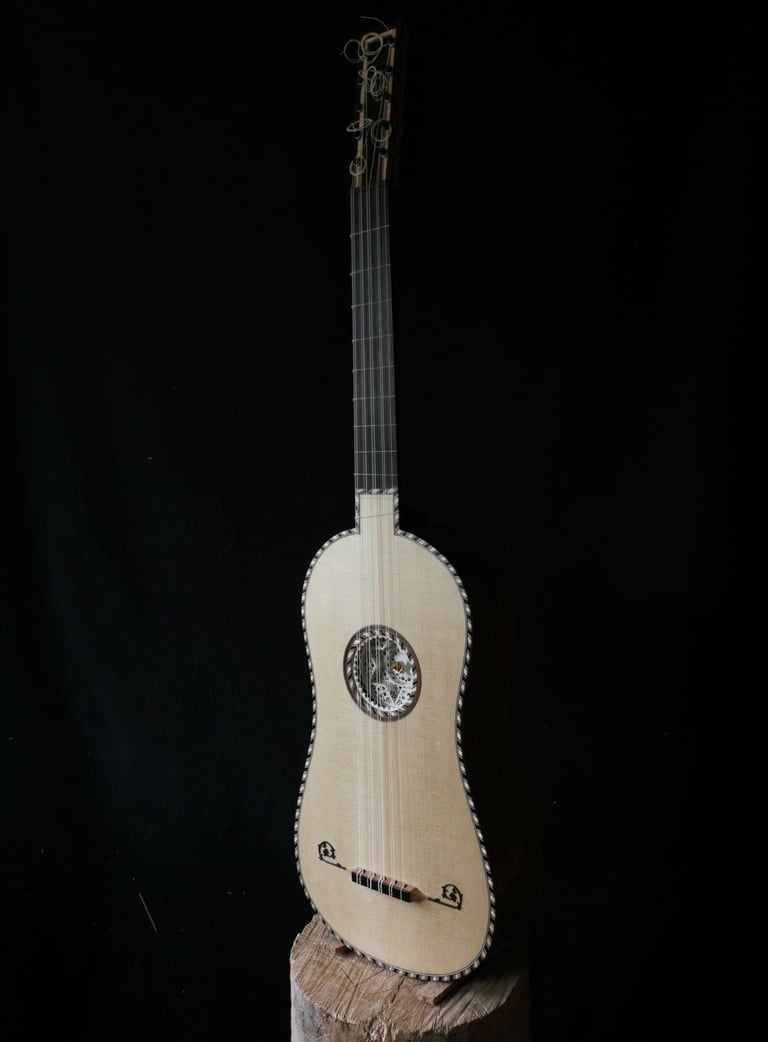

features
4-course (renaissance guitar)
scale 540 mm (in g)
silhouette from Belchior Dias 1581
Price: flat back €3000, vaulted back €3500, fluted back (as original B. Dias) €4500
5-course (baroque guitar)
scale 690 mm (in e)
based on Jean Voboam 1680
flat back
Price: €4000
6-course (vihuela)
scale 630 mm
flat back
Price: €3500
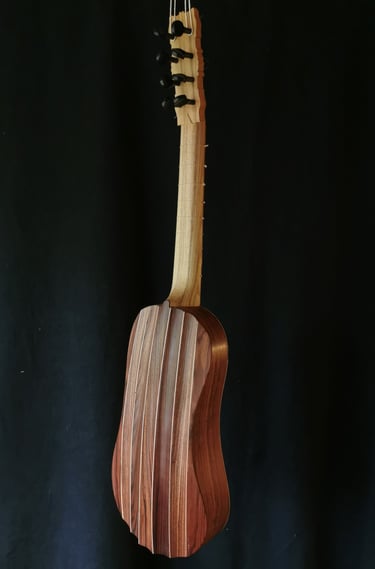

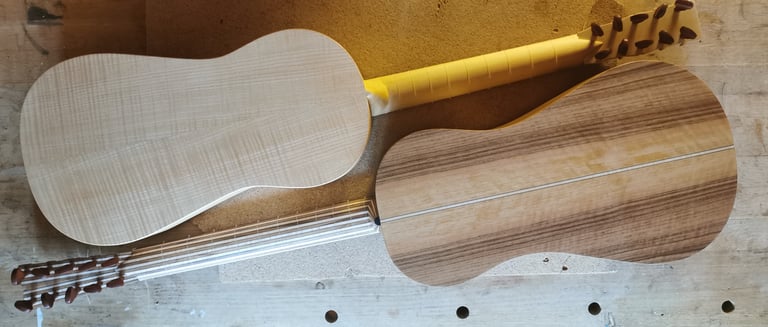

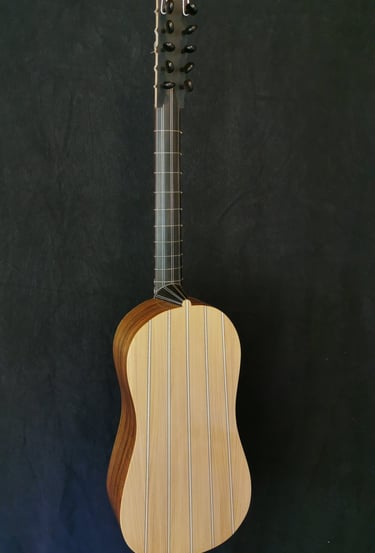

options
Wood
Standard wood option for all early guitars: top:spruce, back&sides:walnut/maple, neck:maple/black alder, bridge:pear/walnut
Strings
Standard is nylgut. Can also be fitted with gut strings(extra cost).
Finish
Standard natural linseed oil finish. Can also be finished with shellac (+€600)
Rose
Roses are hand cut by myself in parchment. Standard is 3-layered options. For deep roses contact me for prices.
Cases
I normally use cases by Kingham. Contact me for prices.
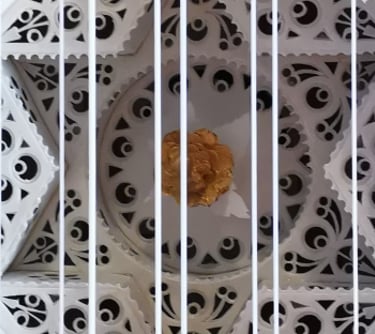

roses
handcarved in parchment
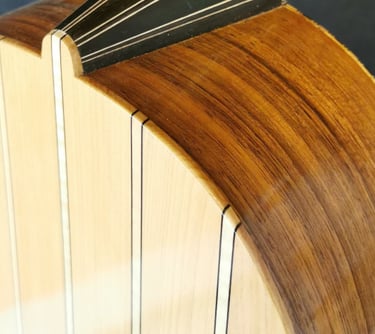

combination of woods
cypress, maple, walnut, ebony & spruce
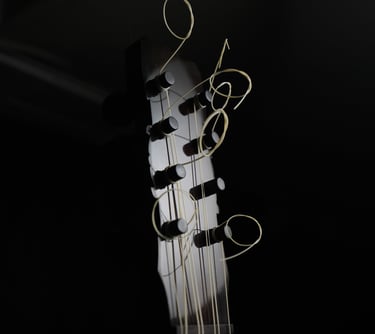

headstock
with wooden pegs
